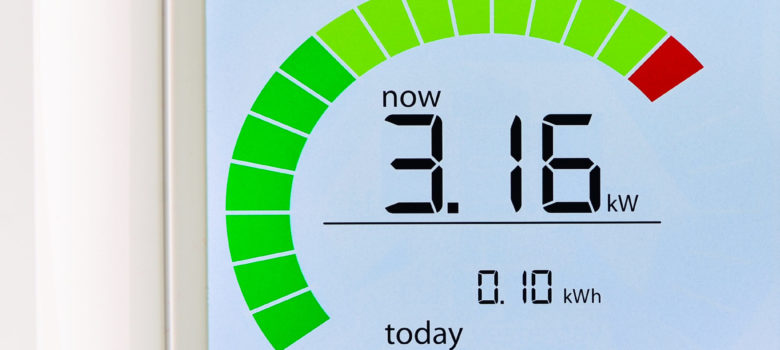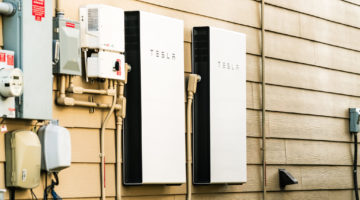
It’s safe to say that recent governments’ efforts to install smart meters in UK households have not been universally popular. The national rollout scheme – originally intended to be completed in 2020 – is now encountering more problems, with fears that rising costs will be passed on to householders.
Smart meter rollout delayed
The rate of installations needs to increase, as it’s been much slower than first hoped. Up to 7 million smart meters have been installed to date in the UK, of the 53 million originally intended by 2020. The cost to suppliers of rolling out the scheme is rising, as many customers have been harder to persuade than expected.
Due to a lack of clear advice, a lot of people fail to see the benefits of having a smart meter installed – especially as it basically means taking a day off work. Scaremongering hasn’t helped, with theories circulating about ulterior motives for collecting customers’ usage information! Momentum has also been halted by serious technical issues, as some people’s meters have stopped working after switching supplier, despite repeated assurances otherwise.
Rising costs of smart meters
There has been a lot of criticism that the scheme has been badly run and suggestions it should be be paused and reconsidered, before costs spiral further. The cost per household of having a smart meter installed has risen from £100-130, due to increased administrative costs from chasing hard-to-reach customers. Although householders won’t shoulder the whole cost of installation, a fraction will be passed on to them via their energy bills – exactly how much remains to be seen.
The increased cost per household has been blamed in part for the big six energy companies’ recently rising bills. If bill payers end up shouldering higher costs for installation, it will contradict promises made by the government, further fueling mistrust.
What’s next for smart meters?
The government included its commitment to smart meters in the Queen’s Speech to Parliament. There was a veiled admission of defeat in the subtle change of wording used; there’s now only a promise to ‘offer’ a smart meter to every household by 2020. This buys them more time to (hopefully) iron out all the problems… Something that might worry some people is the fact that the Queen’s Speech also mentioned the possibility of smart meter regulations being changed in the future.
Many already have fears over how data will be stored and used, but at the moment this seems unfounded. They don’t collect any more data than ordinary meters, and energy companies can’t share it unless you give them explicit permission.
Importantly, no-one will be forced to have a smart meter installed – but there is still a lot of hope for their benefits, provided current issues are resolved. Proponents say that the positives of smart meters will mean they pay for themselves in the future, but in order for the benefits to be realised, the majority of UK residents need to be persuaded to co-operate. The government and energy companies have a lot to do to reassure people and encourage them that getting a smart meter is in their best interests.
Have you had a smart meter installed? Do you think they are a good thing, or an expensive mistake for the UK? Comment below to let us know your thoughts…












Yep, switched suppliers, now I have a piece of electronic junk on my wall.
Tim – who were you with (energy supplier) when you got the new smart meter installed? It is interesting to know that smart meters are still being installed that are not compatible when you switch suppliers!
I do not think that smart meters are a good thing at all. They are extremely detrimental to health…”We have evidence that exposure to RF radiation….increases the risk of cancer, increases damage to the nervous system, causes electro-sensitivity, has adverse reproductive effects and a variety of other effects on different organ systems. There is NO justification for the statement that “Smart Meters have no adverse health effects.” – Dr. David Carpenter, Director of the Institute of Health and Environment University of Albany, New York, ex head of the New York Department of Public Health. As shown by Senior Nuclear Policy Lecturer at UCSC, Daniel Hirsch ‘Smart Meters can expose the body to 160 to 800 times as much microwave radiation as mobile phones. Smart Meters can emit intense pulses of radiation more than 14,000 times EACH DAY’. ‘The ICNRP safety standards which the UK Government and HPA continue to use, fail to recognise the non-thermal, biological effects of microwave radiation. These standards were voted OBSOLETE by the European Parliament 506 votes to 22’. ‘The AAEM has called for the complete removal of ‘Smart’ Meters and a return to safe analogue…due to scientific and medical studies repeatedly showing health risks from exposure to microwaves emitted from wireless devices.’ American Academy of Environment Medicine (AAEM), January 2011. SO WHY ON EARTH WOULD ANYONE WANT SOMETHING IN THEIR HOUSE, OR ON THE OUTSIDE OF THEIR HOUSE THAT IS ALMOST AS BAD AS HAVING A MOBILE PHONE MAST IN THEIR HOUSE. SO SAY NO TO SMART METERS! Really!
And I would never move into a house that has had a smart meter installed as I believe it devalues a house – it’s like having a pylon or mobile phone mast stuck outside your door.
Bacause her new home has a smart meter,my niece is under the impression she cannot switch energy supplier from British Gas to N Power …that is according to N Power.
Thank god there’s a delay! These are nothing but a health hazard waiting to happen!
A total failure. Save nothing and even some energy companies haven’t a clue. They still persist to wildly exaggerate annual consumption based on industry averages even if a low user. Another white elephant. Not for me.
Smart meters are an expensive and dangerous mistake. I monitor my gas and electricity use by switching off unnecessary appliances and other sensible actions. I do not need a ‘smart’ meter and am refusing to have one fitted.
Had 1 installed as i went to bill payment as they refused to install a non smart meter in, was put into dumb mode and told it couldnt be active unless i called them to do so all is well untill recently when it was activated now i no longer can sit up stairs for long periods of time without feeling dizzy having head aches and feeling ill feel like a prisoner in my own home because they want readings not only am i suffering but so is my partner
I had a smart meter installed yesterday and this morning our central heating went down. Plumber got it restarted but it failed again at lunchtime – plumber reckons the circuit board in the pump has gone. Then this afternoon a convector heater we’ve had to use in place of the central heating blew a fuse. Coincidence?